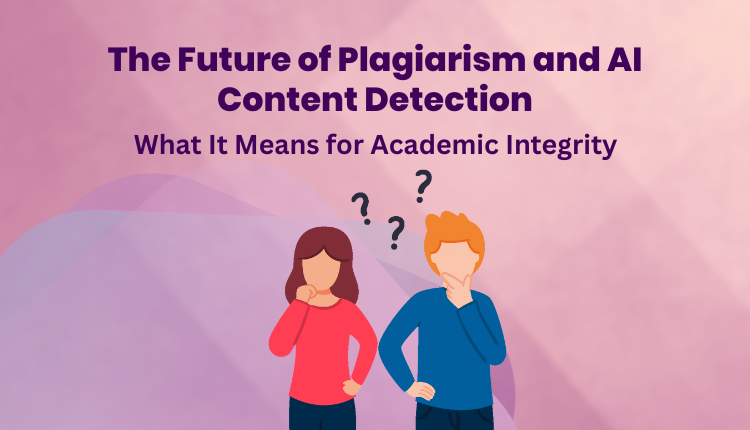The Future of Plagiarism and AI Content Detection: What It Means for Academic Integrity

The rapid advancement of artificial intelligence has triggered a major challenge in higher education: distinguishing between original student work and AI-generated content has become increasingly difficult. Traditional plagiarism detection tools are no longer effective against advanced AI systems that generate sophisticated, contextually accurate text that mimics human writing.
Universities now face a critical turning point. To preserve academic standards, they must evolve their integrity frameworks instead of relying on outdated policies. Banning AI is not the answer; instead, institutions need transparent systems that rebuild trust between educators and students and support genuine learning.
AI’s Role in Redefining Academic Integrity
With the advent of large language models, the very concept of originality in academic work is being questioned. The lines that once clearly defined plagiarism are now blurred, as AI can assist in generating ideas, arguments, and even entire essays. What was once seen as a straightforward measure of academic effort has now become complex and ambiguous.
This shift has introduced new forms of academic misconduct that traditional systems struggle to detect. Advanced paraphrasing, source manipulation, and AI-generated content increasingly evade existing tools, raising deeper concerns about what counts as legitimate scholarly contribution in the digital age.
Why Traditional Detection Tools Fall Short
Most plagiarism tools are built to catch direct copying, not the nuanced transformations AI can perform. They can’t reliably flag work that’s been subtly rewritten or completely generated by AI tools. As AI becomes better at mimicking human logic and expression, educators are left with the difficult task of determining what’s ethical student use and what’s dishonest AI exploitation.
This growing problem calls for more advanced detection solutions—ones that can uncover AI-assisted writing, complex paraphrasing, and blended human-AI collaborations. Without these, institutions risk allowing academic fraud to thrive undetected, threatening the very integrity of their academic credentials.
DocuMark: A New Standard for Transparent Authorship
In response to these challenges, DocuMark offers a powerful solution designed to restore clarity and trust. Developed by Trinka AI, DocuMark passively records every part of the writing process, including keystrokes, pasted content, and AI tool usage. It creates a verified, time-stamped log of how each assignment was produced.
Once students complete their work, they review and confirm their submission before generating a report that details their writing journey. This report can then be shared with instructors, offering a transparent and evidence-based view of the student’s effort and process without burdening faculty with time-consuming investigations.
DocuMark fosters an environment of trust, allowing students to demonstrate academic honesty while giving educators fair and reliable tools to assess genuine learning. It integrates AI responsibly into education, rather than avoiding it altogether.
The Cost of Inaction
Without tools like DocuMark, universities risk a breakdown of academic trust. Faculty are exhausted from constantly verifying work manually. Students, in turn, often feel mistrusted, leading to disengagement and confusion about what is allowed.
Without clear guidance, some students avoid using helpful AI tools altogether, while others misuse them, often unintentionally crossing ethical boundaries. Both outcomes weaken the learning experience.
To safeguard academic standards and institutional credibility, universities must view tools like DocuMark as essential infrastructure. Postponing this decision risks compromising the quality of education in the AI era.
To learn how DocuMark can support your institution in maintaining integrity while embracing AI, contact us at: support@trinka.ai




